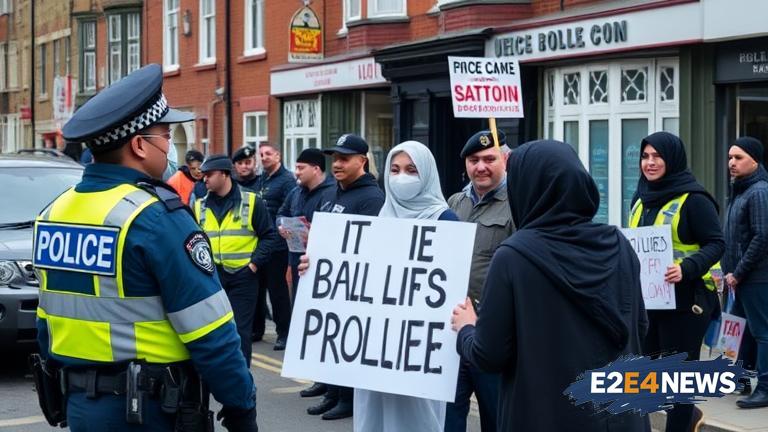A recent scandal involving the grooming of young girls by a group of men, mostly of Pakistani origin, has sparked widespread outrage and led to a boycott of the UK police force by the Muslim community. The scandal, which was uncovered in a small town in the north of England, has raised serious questions about the police’s handling of the case and their relationship with the local Muslim community. Many Muslims have expressed feelings of anger, frustration, and betrayal, and have called for greater accountability and transparency from the police. The boycott, which has been supported by several Muslim organizations and community leaders, is seen as a way of protesting against the police’s perceived inaction and lack of concern for the welfare of Muslim victims. The scandal has also highlighted the need for greater diversity and representation within the police force, with many arguing that the lack of Muslim officers has contributed to the problem. The UK government has promised to take action to address the issue, but many are skeptical about the effectiveness of their plans. The scandal has also sparked a wider debate about the nature of grooming and the ways in which it can be prevented. Some have argued that the problem is not limited to one particular community, but is instead a widespread issue that requires a comprehensive and coordinated response. Others have pointed out that the scandal has been used to perpetuate negative stereotypes about Muslims and to fuel anti-Muslim sentiment. Despite these challenges, many are hopeful that the scandal can be used as an opportunity to build greater trust and understanding between the police and the Muslim community. This will require a sustained effort to address the underlying issues and to promote greater diversity and inclusion within the police force. The UK police force has a long history of struggling to recruit and retain Muslim officers, and this scandal has highlighted the need for urgent action to address this problem. Several initiatives have been launched to increase diversity and inclusion within the police force, including mentoring programs and outreach initiatives. However, many argue that more needs to be done to address the systemic issues that have contributed to the scandal. The UK government has also announced plans to increase funding for programs aimed at preventing grooming and supporting victims. These plans have been welcomed by many, but others have expressed concerns about the effectiveness of the measures and the potential for them to be used to stigmatize and marginalize certain communities. Ultimately, the scandal has highlighted the need for a nuanced and multifaceted approach to addressing the complex issues surrounding grooming and policing. This will require a sustained effort to build trust and understanding between the police and the Muslim community, as well as a commitment to promoting greater diversity and inclusion within the police force.
